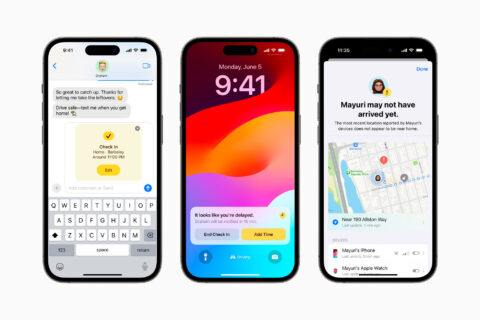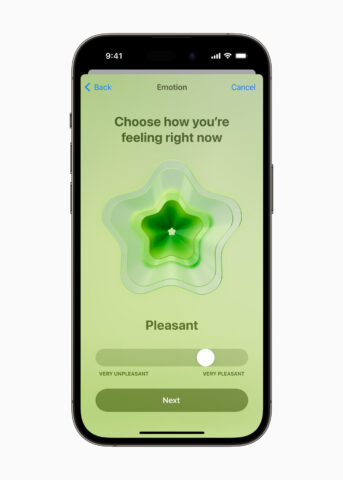It’s time to ensure your iPhone improves your wellbeing, rather than making life worse
Stress and anxiety increasingly impact people’s lives – and mobile devices may be partly to blame. Carrying a smartphone everywhere means being constantly connected to the internet, making it difficult to switch off. It’s hard to avoid the constant stream of news, work-related demands, and numerous notifications.
Apple has in recent years acknowledged this issue – and made efforts to address it. Recent iOS updates included features that encourage you to take a step back and be more mindful of device usage. For example, Screen Time allows you to track apps and games you use, and set limits on activities that you consider aren’t beneficial to your personal wellbeing. Additionally, the Apple Watch can encourage you to take mindfulness breaks and engage in calming breathing exercises.

With iOS 17, Apple is expanding this line of thinking. A check-in feature will notify you when a loved one arrives home safely, reducing the need to constantly monitor Find My. This should be particularly handy for tracking kids or making sure elderly relatives are back home when expected.
Another positive addition is Journal, which will help you note down personal memories and make connections between your current state and past events. Similarly, Apple’s upcoming mental health logging will encourage you to record your state of mind and reflect on how factors such as sleep, daylight exposure, exercise, and mindfulness affect your wellbeing.

In most cases, Apple has a key advantage over third-party services and apps in being able to seamlessly draw from your activity and surface relevant information in context, thereby making logging easy rather than burdensome. However, Apple also has blind spots. Notably, it has a tendency towards rigidness, as evidenced by Apple Watch Activity rings, where streaks are easily broken and cannot be recovered. This can lead to people feeling upset and demoralized, whereupon they abandon the process.
If Apple’s new systems really are to reduce stress and help you relax, then, they will need to be effective and easy to integrate into daily routines, and add meaningful value. But above all, they will need to be human. If Apple’s approach is too prescriptive and uncompromising, it could backfire – even if these features were created with the very best of intentions.

